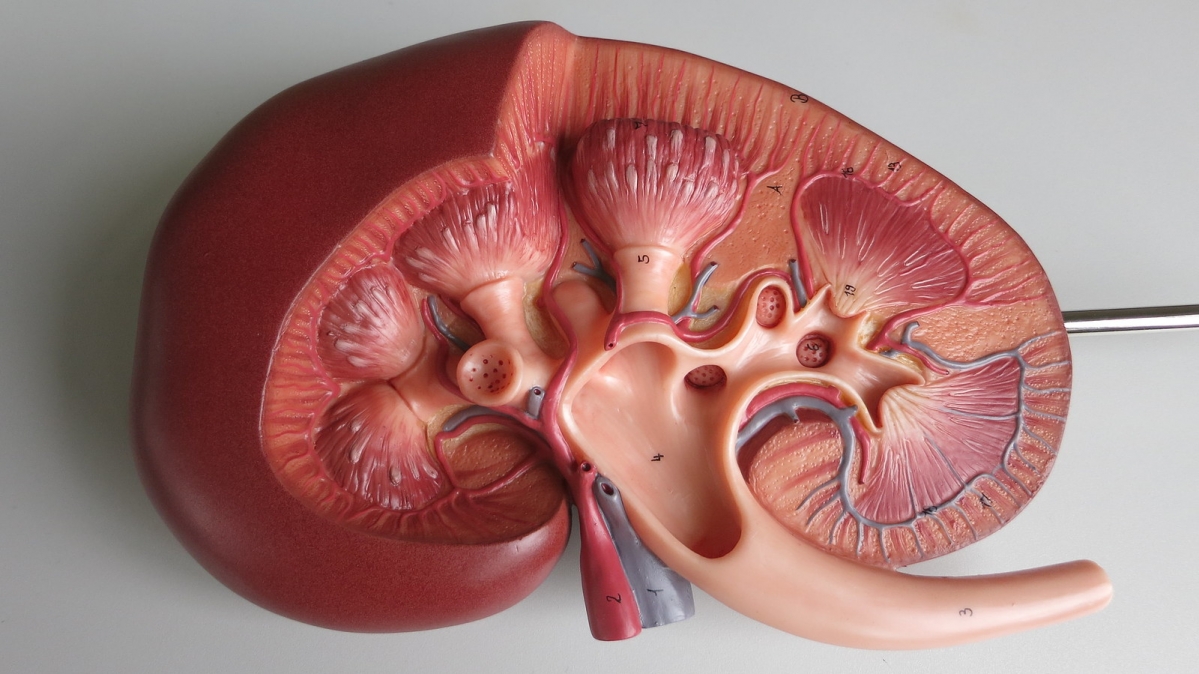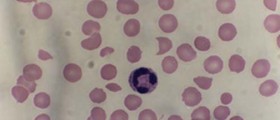Nephritic syndrome, also known as acute nephritic syndrome, is a spectrum of signs and symptoms associated with kidney disorders, more specifically glomerular disorders. Acute nephritic syndrome manifests in swelling or inflammation of the internal kidney structures, the glomeruli, obstructing their normal functioning. The main biological role of glomeruli is to filter the blood to form urine. When these filtering pores are damaged, they become large enough to permit blood and protein leaking in the urine, and the buildup of excess fluid in the body. Nephritic syndrome is distinguished from nephrotic syndrome, a condition in which only proteins from blood leak into the urine.

Causes of nephritic syndrome
Nephritic syndrome can be caused by various disorders, such as infections, an inherited genetic disorder, or autoimmune disorders. The condition is often caused by an immune response that is triggered by an infection or other disease. Especially in children, the syndrome occurs as a complication of throat or skin infection by streptococcus, a type of bacteria, or viral infections, such as chickenpox, and parasitic infections, such as malaria. If the acute nephritic syndrome does not resolve, it becomes chronic. Sometimes, chronic nephritic syndrome is caused by inherited genetic disorder, hereditary nephritis.
Signs and symptoms of nephritic syndrome
It is estimated that half of the patients with acute nephritic syndrome have no symptoms at all. If the symptoms occur, they usually include swelling of the tissues, caused by fluid retention, low urine volume, and dark urine. Urine appears to be dark because it contains traces of blood. Swelling usually includes puffiness of the face and eyelids and swelling in the legs. When the water retention becomes severely excessive, it affects the blood pressure and makes it rise. The brain tissue may also swell resulting in headaches, visual disturbances, and seizures. Nonspecific symptoms such as nausea and malaise are also common. Nephritic syndrome is a silent disease that normally causes very mild symptoms that often go undetected until the kidney failure fully develops.
Treatment of nephritic syndrome
Acute post streptococcal glomerulonephritis resolves completely in most cases, especially in children. However, it is estimated that approximately 0.1% of children and 25% of adults develop chronic kidney failure. The prognosis depends on the severity of glomerular scarring and whether the underlying disease, such as infection, can be cured. Treatment usually involves a diet low in protein and sodium, until kidney function recovers. Diuretics are used to improve the excretion of excess sodium and water. Doctors may even prescribe medications to control the blood pressure.

















Your thoughts on this
Loading...